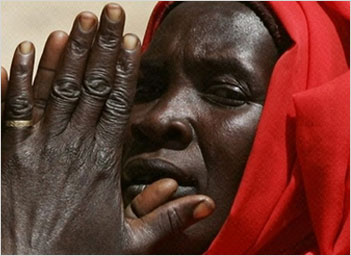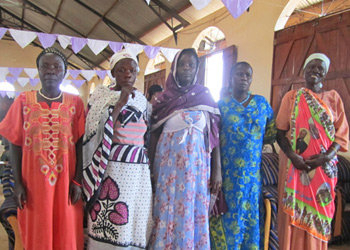SOUTH Sudan’s may have been prophesied in the Bible thousands of years ago.
According to a CBN news report, Christians in southern Sudan believe recent events in their country are part of God’s plan for their nation. Sudan sits just below Egypt.
The north is ruled by Islamic dictator Omar al-Bashir, but the south is dominated by Chrisitans, who believe biblical prophecy is coming true right before their eyes.
Southern Sudanese residents recently voted for independence from the largely Muslim north.
Christians say the Bible talks about the land of Cush in Isaiah:18, describing a land divided by rivers where the people are tall and smooth-skinned.
Many south Sudanese Christians believe this passage refers to them, and they will soon be free to praise God in their own land.
According to Wikipedia, the existence of the historical Kingdom of Kush in what is now areas of southern Egypt, and Sudan cannot be reasonably questioned, although the term may later have been employed with some latitude.
In addition, the modern Cushitic branch of the Afro-Asiatic language family spoken by various populations in the Horn of Africa, is named after the Biblical Cush.
In the Bible, Cush is the name of two men and a land. It is the name given to the eldest son of Ham and the father of Nimrod (Gen. 10:8; 1 Chr. 1:10). From him the land of Cush seems to have derived its name. Cush means black.
The land of Cush: The term Cush in the Old Testament is generally applied to the countries south of the Israelites. It was the southern limit of Egypt (Ezek. 29:10, Authorized Version “Ethiopia,” Hebrew: Cush), with which it is generally associated (Ps. 68:31; Isa. 18:1; Jer. 46:9, etc.).
Ezekiel speaks (29:10; compare 30:4-6) of it as lying south of Egypt. It was the country now known to us as Nubia and Abyssinia (Isa. 18:1; Zeph. 3:10, Hebrew: Cush). In ancient Egyptian inscriptions Ethiopia is termed Kesh.
The second man known by this name in the Bible was a Benjamite. He is mentioned in the title of Ps. 7. “Cush was probably a follower of Saul, the head of his tribe, and had sought the friendship of David for the purpose of ‘rewarding evil to him that was at peace with him.'”






















